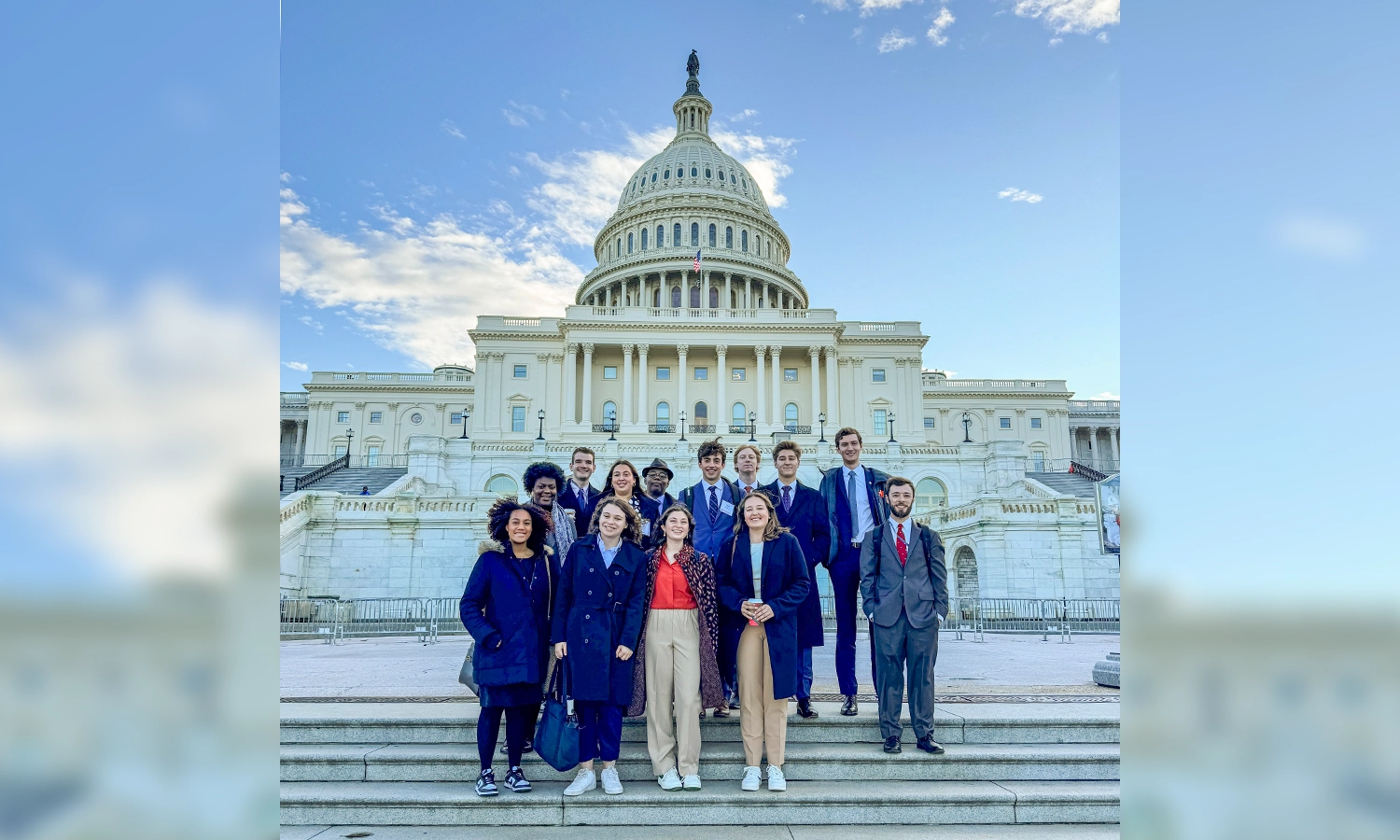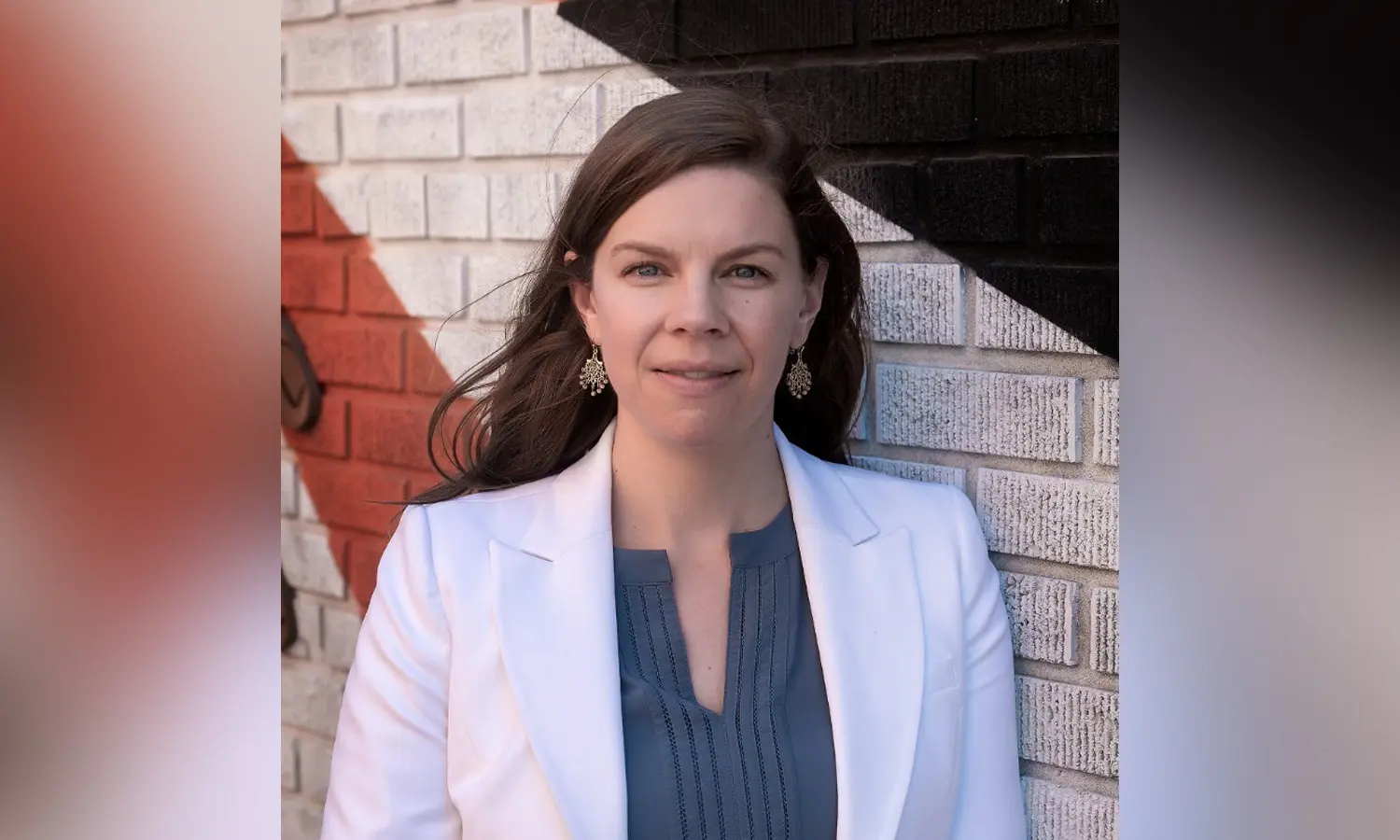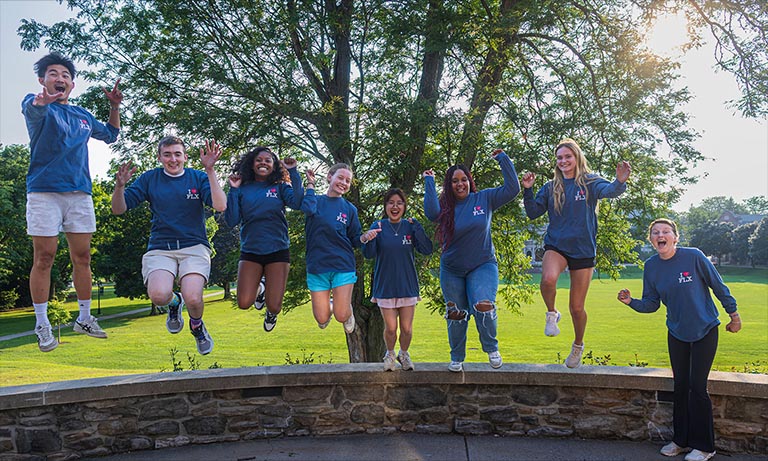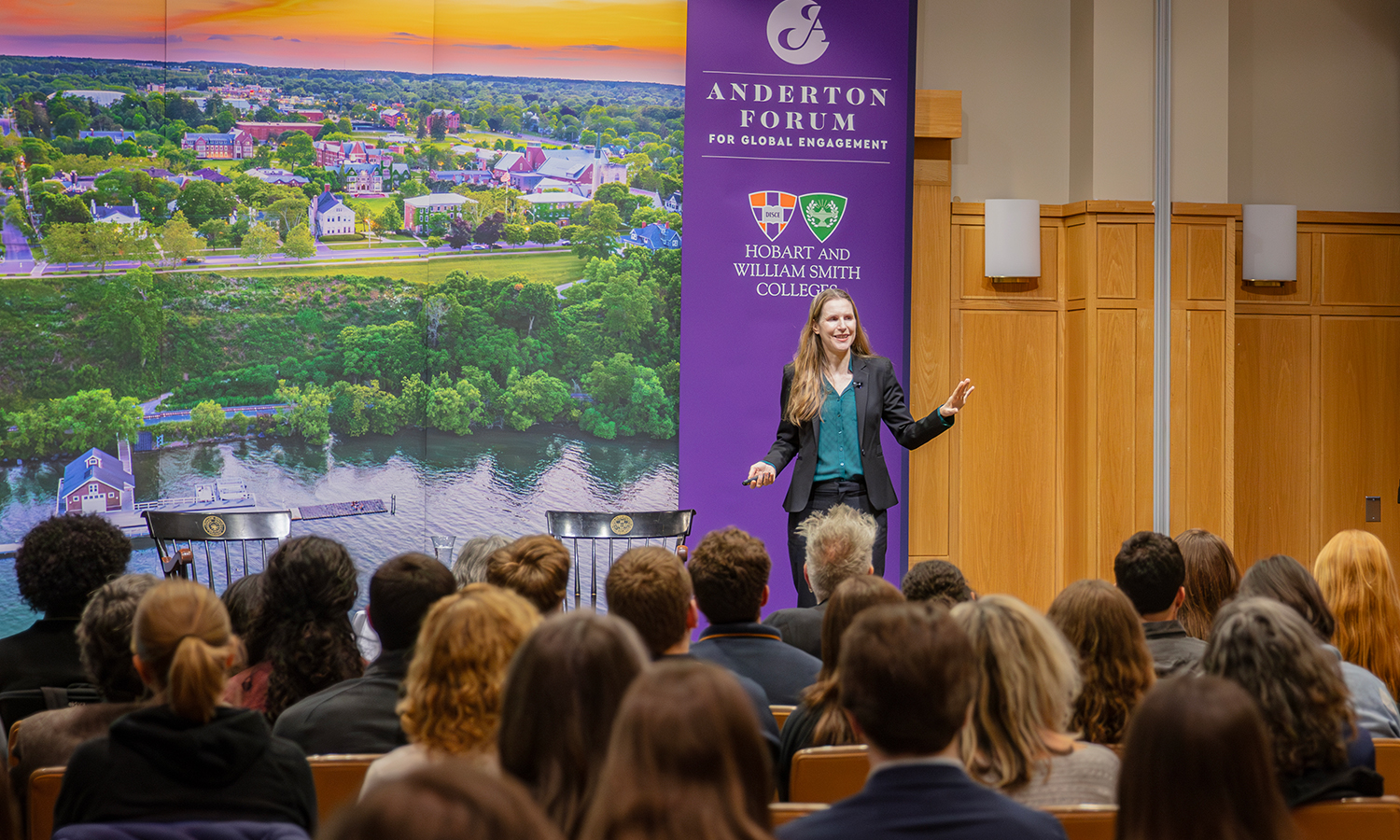
HWS News
29 March 2024 New Approaches for Lasting Peace
During the Anderton Forum for Global Engagement, award-winning author and scholar Séverine Autesserre discussed global conflict, peace-building and hope.
More than two billion people live under the threat of violence in more than 50 conflict zones around the world, as Séverine Autesserre pointed out during the annual Anderton Forum for Global Engagement.
President Mark D. Gearan and Séverine Autesserre 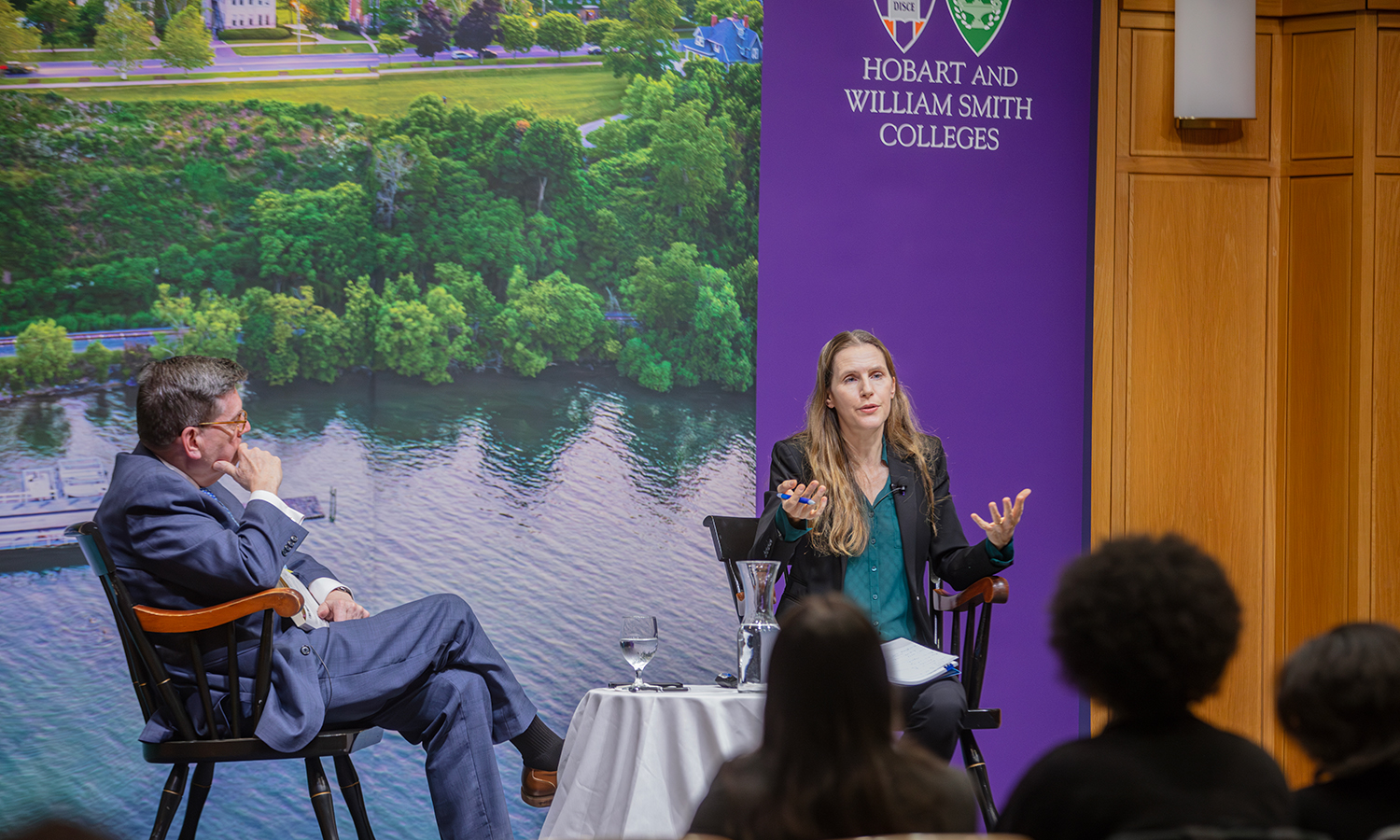
“Peace-building is a crucial task. The thing is that our templates for approaching war and peace just don’t work,” she said.
An award-winning author, peacebuilder, researcher and Professor and Chair of Political Science at Barnard College, Columbia University, Autesserre discussed the years of field research that informed her 2021 book, The Frontlines of Peace.
“Afghanistan, Colombia, Congo, Syria, Ukraine, Israel and the Palestinian territories — we’ve heard the same stories many times before,” she said. “There was violence, the United Nations got involved. Donor countries pledge millions in assistance, parties call for ceasefires, they sign agreements, they hold elections, and the headlines praise piece. And then a week or two later, sometime just days later, violence flares up again. Often it had never actually ended, and in many cases it continued for years after.”
“Contrary to what most politicians preach, building peace doesn’t require billions in aid or massive international interventions. Instead, it often involves giving power to ordinary citizens," said Séverine Autesserre.Autesserre’s ethnographic research in 12 countries over 25 years has revealed that lasting peace tends to arise thanks to “the ordinary and yet extraordinary individuals and communities that have found effective ways to confront violence,” she said.
Citing examples from Africa to the Balkans, she noted the effectiveness of grassroots peacebuilding, the problems of conventional approaches and successful instances of what she called “unlikely peace.”
“Contrary to what most politicians preach, building peace doesn’t require billions in aid or massive international interventions. Instead, it often involves giving power to ordinary citizens. Ultimately, many successful examples of peace building in the past few years all involved innovative grassroots initiatives led by local people,” she said.
After the lecture, President Mark D. Gearan facilitated a conversation around the impact of organizations such as the Peace Corps and Doctors without Borders; conflicts in Ukraine and the Middle East; and the roles that outsiders can play in international peacebuilding efforts.
As Professor of International Relations Kevin Dunn said in his introduction, Autesserre is a scholar and researcher “who is driven to seek solutions and not just point out the problems.” She has worked for Doctors Without Borders and at the United Nations headquarters, and her research has helped shape the intervention strategies of several United Nations departments, foreign affairs ministries and non-governmental organizations, as well as those of numerous philanthropists and activists. In addition to The Frontlines of Peace, Autesserre is the author of The Trouble with the Congo and Peaceland, and has written for publications such as Foreign Affairs, International Organization and The New York Times. She has also been a featured speaker at the World Summit of Nobel Peace Laureates, the U.S. House of Representatives and the United Nations Security Council.
Established in 2022 by former Trustee James F. Anderton IV ’65, the Anderton Forum brings experts to campus to share their insights and experience while engaging with the HWS community on vital current affairs in international relations. The forum offers the HWS community “a gift that builds connection, one that inspires us to stretch our intellectual and geographic boundaries,” as Professor of Russian Area Studies and Associate Director of the Institute for Global Studies Kristen Welsh said during her introduction.
While on campus, Autesserre met with students and faculty for a range of conversations about research methods, field work and the ways that scholars can confront global problems in meaningful and productive ways.
As part of her visit, the HWS Institute for Global Studies sponsored a faculty reading group around The Frontlines of Peace, and several departments collaborated on a series of events on peacebuilding in anticipation of the Anderton Forum lecture.

